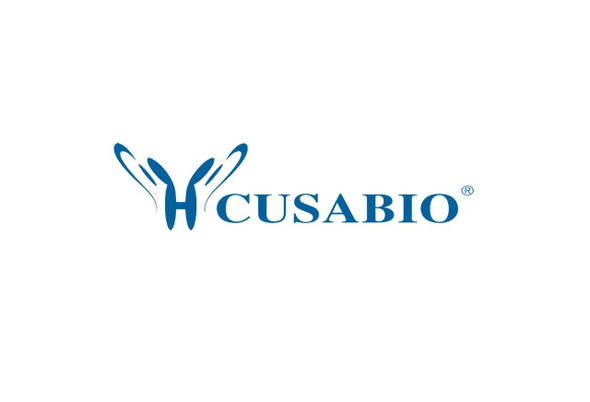Cusabio Human Recombinants
Recombinant Human Dehydrodolichyl diphosphate synthase (DHDDS) | CSB-EP006845HU
- SKU:
- CSB-EP006845HU
- Availability:
- 13 - 23 Working Days
Description
Recombinant Human Dehydrodolichyl diphosphate synthase (DHDDS) | CSB-EP006845HU | Cusabio
Alternative Name(s): Cis-isoprenyltransferase
Gene Names: DHDDS
Research Areas: Others
Organism: Homo sapiens (Human)
AA Sequence: MSWIKEGELSLWERFCANIIKAGPMPKHIAFIMDGNRRYAKKCQVERQEGHSQGFNKLAETLRWCLNLGILEVTVYAFSIENFKRSKSEVDGLMDLARQKFSRLMEEKEKLQKHGVCIRVLGDLHLLPLDLQELIAQAVQATKNYNKCFLNVCFAYTSRHEISNAVREMAWGVEQGLLDPSDISESLLDKCLYTNRSPHPDILIRTSGEVRLSDFLLWQTSHSCLVFQPVLWPEYTFWNLFEAILQFQMNHSVLQKARDMYAEERKRQQLERDQATVTEQLLREGLQASGDAQLRRTRLHKLSARREERVQGFLQALELKRADWLARLGTASA
Source: E.coli
Tag Info: N-terminal GST-tagged
Expression Region: 1-333aa
Sequence Info: Full Length
MW: 65.7 kDa
Purity: Greater than 90% as determined by SDS-PAGE.
Relevance: With DHDDS, forms the dehydrodolichyl diphosphate synthase (DDS) complex, an essential component of the dolichol monophosphate (Dol-P) biosynthetic machinery. Adds multiple copies of isopentenyl pyrophosphate (IPP) to farnesyl pyrophosphate (FPP) to produce dehydrodolichyl diphosphate (Dedol-PP), a precusrosor of dolichol which is utilized as a sugar carrier in protein glycosylation in the endoplasmic reticulum (ER). Regulates the glycosylation and stability of nascent NPC2, thereby promoting trafficking of LDL-derived cholesterol.
Reference: "Systematic mapping and functional analysis of a family of human epididymal secretory sperm-located proteins." Li J., Liu F., Wang H., Liu X., Liu J., Li N., Wan F., Wang W., Zhang C., Jin S., Liu J., Zhu P., Liu Y. Mol. Cell. Proteomics 9:2517-2528(2010)
Storage: The shelf life is related to many factors, storage state, buffer ingredients, storage temperature and the stability of the protein itself. Generally, the shelf life of liquid form is 6 months at -20?/-80?. The shelf life of lyophilized form is 12 months at -20?/-80?.
Notes: Repeated freezing and thawing is not recommended. Store working aliquots at 4? for up to one week.
Function: With DHDDS, forms the dehydrodolichyl diphosphate synthase (DDS) complex, an essential component of the dolichol monophosphate (Dol-P) biosynthetic machinery. Adds multiple copies of isopentenyl pyrophosphate (IPP) to farnesyl pyrophosphate (FPP) to produce dehydrodolichyl diphosphate (Dedol-PP), a precursor of dolichol which is utilized as a sugar carrier in protein glycosylation in the endoplasmic reticulum (ER). Regulates the glycosylation and stability of nascent NPC2, thereby promoting trafficking of LDL-derived cholesterol.
Involvement in disease: Retinitis pigmentosa 59 (RP59)
Subcellular Location: Endoplasmic reticulum membrane, Peripheral membrane protein
Protein Families: UPP synthase family
Tissue Specificity: Expressed at high levels in testis and kidney. Expressed in epididymis (at protein level). Slightly expressed in heart, spleen and thymus.
Paythway:
Form: Liquid or Lyophilized powder
Buffer: If the delivery form is liquid, the default storage buffer is Tris/PBS-based buffer, 5%-50% glycerol. If the delivery form is lyophilized powder, the buffer before lyophilization is Tris/PBS-based buffer, 6% Trehalose, pH 8.0.
Reconstitution: We recommend that this vial be briefly centrifuged prior to opening to bring the contents to the bottom. Please reconstitute protein in deionized sterile water to a concentration of 0.1-1.0 mg/mL.We recommend to add 5-50% of glycerol (final concentration) and aliquot for long-term storage at -20?/-80?. Our default final concentration of glycerol is 50%. Customers could use it as reference.
Uniprot ID: Q86SQ9
HGNC Database Link: HGNC
UniGene Database Link: UniGene
KEGG Database Link: KEGG
STRING Database Link: STRING
OMIM Database Link: OMIM









